Attitudes toward abortion have hardly changed in two years and support for gay marriage is increasing, but half of all Americans think both issues should be handled at the State level.
While debates go on in state houses about new abortion limits, half the country admits it knows little about how hard or easy it is for a woman to get an abortion in their area. According to the latest Economist/YouGov Poll. In fact, there has been little change in perceptions about whether abortions are easy or hard to get locally in over the last year.
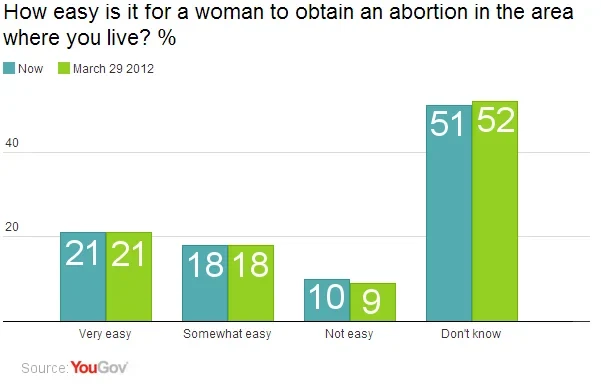
One might expect that women would be better informed than men on the subject – but that’s not the case. Half the women in the poll – as well as half of those under the age of 30 -- admit they don’t know how hard or easy it is to get an abortion where they live. There is also relatively little regional difference, although those in the South are less likely to say abortion is very or somewhat easy to get in their area. 34% in the South think abortion is relatively easy to get in their area, compared with 42% in the Northeast and 47% in the West.
The perception of the ease of getting an abortion, like so many questions today, has a political component. Republicans, 63% of whom would limit legal abortion to the most extreme cases (43%) or outlaw it entirely (20%) are much more likely than Democrats to think abortions are very easy to get in their areas. Only a quarter of Democrats would severely limit abortion access.
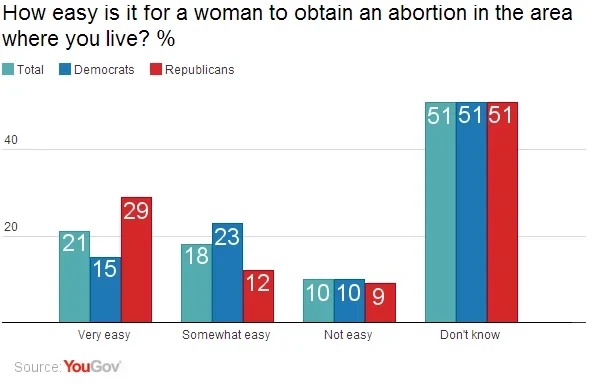
Even though many Americans aren’t sure what state by state differences might be when it comes to abortion availability, state choice on this issue is generally what the public prefers, rather than having one national policy on abortion. Half think states should set their own abortion policies, while only a third say there should be only one national abortion policy.
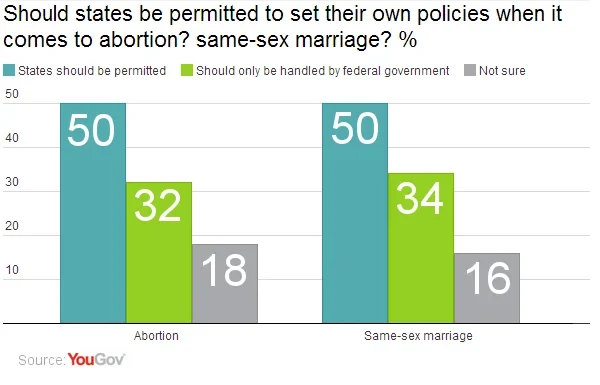
Americans feel the same way about another social issue – same-sex marriage. With 17 states and the District of Columbia now recognizing same-sex unions (with Utah’s recognition is now on hold), half the public thinks state-by-state decisions should determine whether or not same sex marriages should be recognized. A third think this should be a national decision.
On both issues, Democrats (who general favor a woman’s right to an abortion and same-sex marriage), are more likely to say there should be one national policy for both.
Looking ahead, three out of four Americans think the trend in moving in the direction of legal same-sex marriages. Although only 13% of Republicans would choose legal recognition of same-sex marriages (with 40% supporting civil unions), they also overwhelmingly expect same-sex marriage to be legal throughout the country 30 years from now.
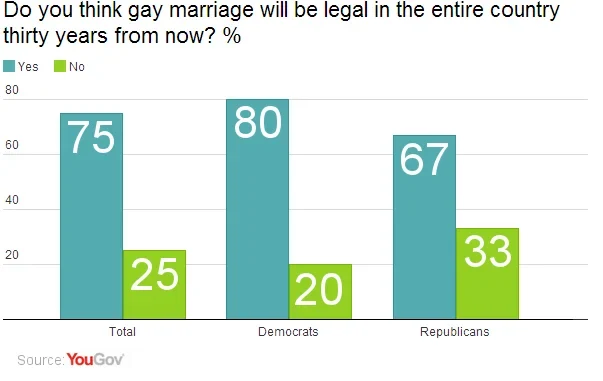
As those expectations – and the laws – change, today more Americans prefer legalizing marriage than prefer legal civil unions. That margin has doubled in the last four years. Today, 45% support same-sex marriage, while another 25% prefer civil unions. Just 23% think there should be no recognition of same-sex relationships, down eight points in the last four years.
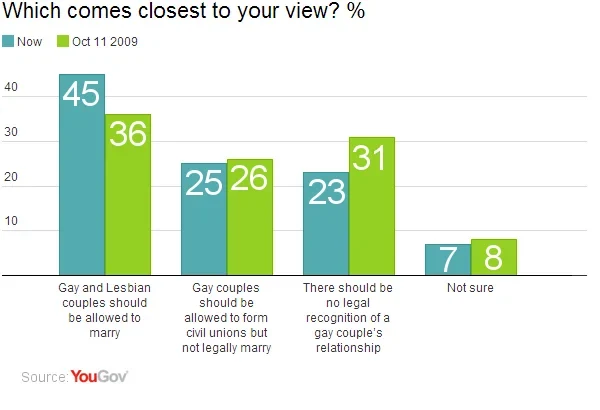
Religion still makes a difference issues like same-sex marriage, abortion and even contraception, as the recent challenge to the Affordable Care Act by the Catholic religious group the Little Sisters of the Poor clearly illustrates.
But Roman Catholics as a group are only a little different from Americans overall when it comes to their position on abortion. Nearly half of Catholics think abortion should be legal, though most say there should be some restrictions on it. 45% would allow the sale of the “morning after” pill available over the counter to those of all ages.
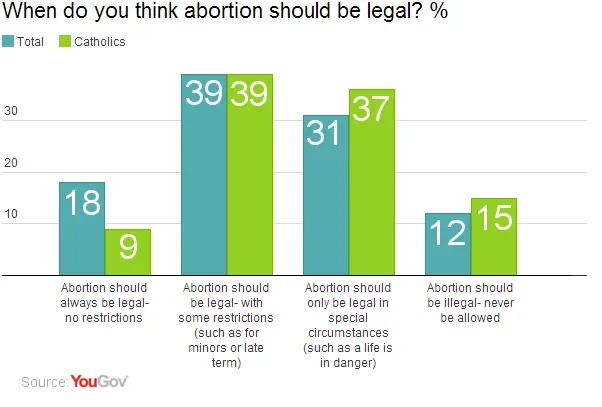
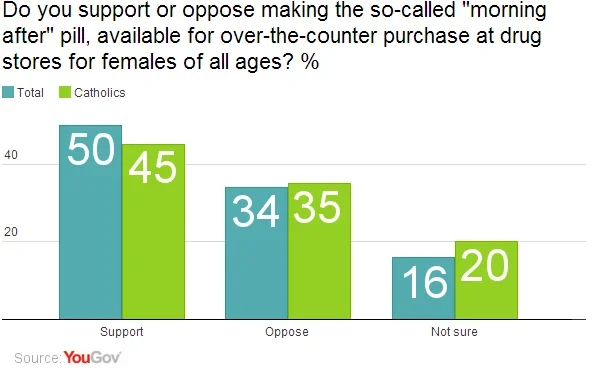
But Catholics do side with the Little Sisters of the Poor when it comes to requiring employers to provide health care plans that cover contraceptive costs. Although for decades majorities of Catholics have approved of legal artificial birth control, Catholics oppose the requirement that employers provide that coverage. Overall, Americans are in favor.
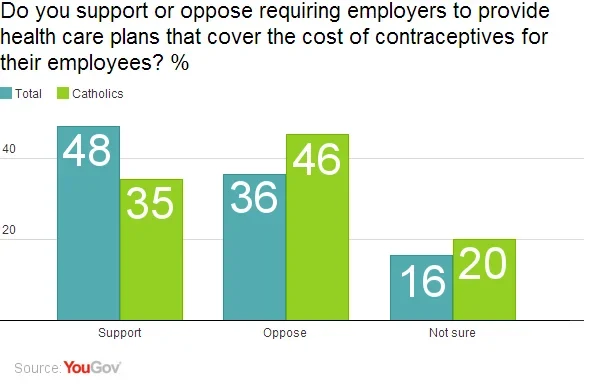
Giving exemptions to religious organizations changes relatively few minds. Fewer than one in five Catholics who oppose the rule would support it even with a specified religious exemption. Catholics would still remain closely divided on the issue.
Full results can be found here.
Economist/YouGov poll archives can be found here.









